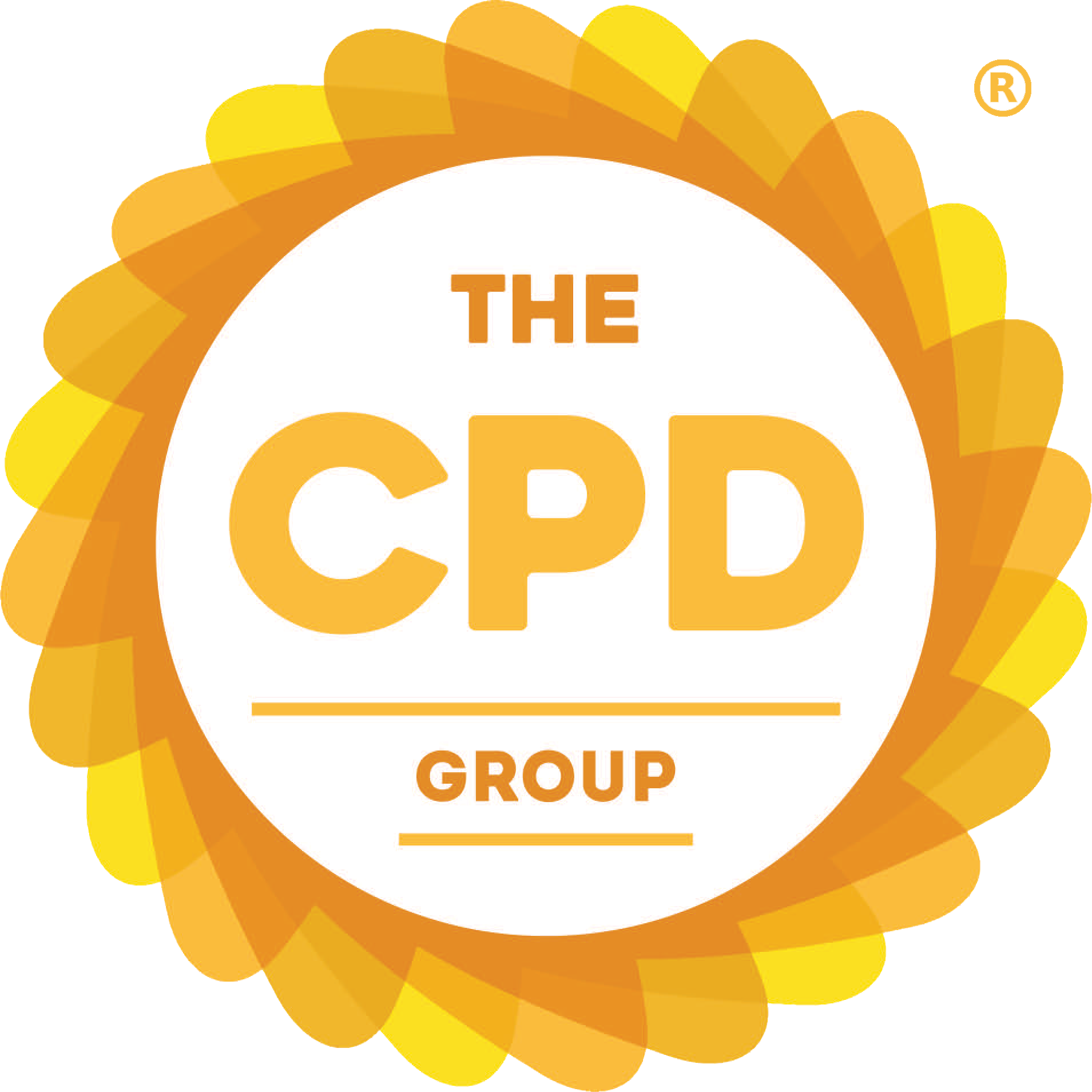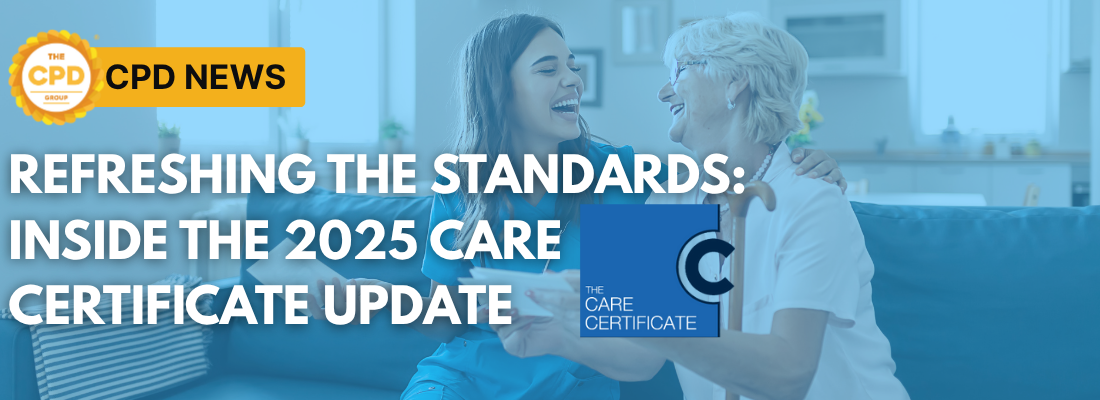Refreshing the Standards: Inside the 2025 Care Certificate Update
Big changes have been made to one of the most important training tools in health and social care. In March 2025, the Care Certificate Standards were updated for the first time since their launch in 2015. Originally introduced to set out the core expectations for all health and social care support workers in England, the Care Certificate was designed to promote a consistent, high-quality approach to care across the sector- ensuring staff have the right skills, values, and understanding to provide support .
This refreshed version was developed by Skills for Care, Skills for Health, and NHS England, bringing together updated guidance that better reflects the way care is delivered today. The new version reflects changes in how care is delivered today, adding a stronger focus on digital skills, inclusive language, and reflective practice. A new Standard 16, dedicated solely to learning disability and autism awareness, has also been introduced.
Below breaks down each of the standards, highlighting briefly the original focus, followed by the key updates or new learning outcomes made to each standards subsections. This new 2025 refreshed update of the Care Certificate standards is set for full implementation by the end of July 2025.

Standard 1: Understand Your Own Role
Original focus:Defining your role, responsibilities, and the importance of working in agreed ways to provide safe, effective care within the wider care team.
2025 Update:
- Learning outcome 1.1: Added- Identify different opportunities for career and professional development
- Learning outcome 1.3: Added - as well as key people, advocates and others who are significant to an individual (into ‘Describe their responsibilities to the individuals they support’)
Standard 2: Your Personal Development
Original Focus: Reflective practice and personal development planning to improve knowledge, skills, and competence in line with individual and organisational goals.
2025 Update:
- Learning outcome 2.2: Added - Digital skills (into ‘Describe the functional level’ and ‘Explain where to find information and support on how to check and develop own current level of skills’)
- Added: Learning activity (into ‘Describe how reflecting on a situation has improved their own knowledge, skills and understanding’)
Standard 3: Duty of Care {duty-of-care}
Original Focus: Understanding the duty of care, including how to safeguard individuals and handle comments, concerns, or complaints professionally and ethically.
2025 Update:
- Learning outcome 3.1: Added - Define duty of candour
Standard 4: Equality, Diversity, Inclusion and Human Rights
Original Focus: Promoting equality, respecting diversity, and ensuring human rights are upheld in all aspects of care delivery, while challenging discrimination.
2025 Update:
- Note: Standard title has changed to reflect inclusion and human rights.
- Learning outcome 4.1: Added - including protected characteristics (into ‘Explain what is meant by equality’), added ‘Explain what is meant by bias and discrimination’
- Learning outcome 4.2: Added - Demonstrate interactions with individuals that support culturally appropriate care, and describe how to recognise, challenge and report discrimination positively and appropriately

Standard 5: Work in a Person- Centred Way
Original Focus: Supporting individual preferences, choices, and dignity by delivering care that respects the unique needs, values, and relationships important to the person.
2025 Update:
- Learning outcome 5.1: Added - Identify centred values and describe how to put them into practice in their day-to-day work
- Added: Explain the importance of relationships significant to the individual being supported
- New learning outcome5.3: Understand the meaning of mental capacity, including relevant legislation, best interest decisions, and advance directives (moved from previous Standard 9)
- Learning outcome 5.5: Added - Emotional distress recognition
- Learning outcome 5.6: Added - Broader definition of ‘wellbeing’ replacing emotional and spiritual wellbeing
Standard 6: Communication
Original Focus: Using effective communication methods to reduce barriers and support individuals’ understanding and expression in a variety of contexts.
2025 Update:
- Learning outcome 6.2: Added - aids, assistive technologies, and digital communication tools
- Learning outcome 6.3: Added - Describe how behaviour can be a form of communication
- Learning outcome 6.6: Added - Ensure safe and appropriate use of communication aids, assistive technologies, and digital tools
Standard 7: Privacy and Dignity
Original Focus: Maintaining individuals’ privacy, dignity, and independence in all care and support activities to promote respect and self-worth.
2025 Update:
- Learning outcome 7.1: Added - Describe different ways to maintain privacy and dignity
- Learning outcome 7.5: Added - Importance of enabling independence and maintaining social and community connections
Standard 8: Fluids and Nutrition
Original Focus: Supporting individuals to access and consume adequate food and drink, considering their preferences and any health needs.
2025 Update:
- Learning outcome 8.1: Added - Identify and report risks relating to nutrition and hydration
- Learning outcome 8.3: Added - Ensure nutritional products are accessible for those with restricted liberty or mobility

Standard 9: Awareness of Mental Health and Dementia
Original Focus: Understanding common mental health conditions and dementia, their impact on individuals, and how to provide appropriate care and support.
2025 Update:
- Note: Learning disabilities and autism moved to new Standard 16
- Learning outcome 9.1: Added - Definitions of mental health, mental wellbeing, and dementia; list common conditions
- Learning outcome 9.3: Added - Identify reasonable adjustments in care services
- Learning outcome 9.4: Added - Recognise early indicators of deterioration and how to signpost support
Standard 10: Adult Safeguarding
Original Focus: Recognising abuse, neglect, and exploitation of adults at risk and responding appropriately to protect them.
2025 Update:
- Learning outcome 10.1: Added - Legal definition of adult at risk, risks from technology, restrictive practices, and role in implementing safeguards
- Learning outcome 10.2: Changed - Terminology updated to ‘may be at risk’ from ‘vulnerable’
Standard 11: Safeguarding Children
Original Focus: Protecting children from harm by recognising abuse signs and knowing how to respond in line with legal frameworks.
2025 Update: No changes made.
Standard 12: Basic Life Support
Original Focus: Performing basic life support procedures effectively to preserve life in emergencies.
2025 Update: No changes made.

Standard 13: Health and Safety
Original Focus: Preventing accidents and ensuring a safe environment for individuals and workers, including understanding risks and safety procedures.
2025 Update:
- Learning outcome 13.9: Revised - Managing mental health and personal wellbeing, identifying stressors and accessing support
Standard 14: Handling Information
Original Focus: Keeping records secure, accurate, and confidential, following organisational and legal requirements.
2025Update:
- Learning outcome 14.1: Added - Reporting data breaches and digital data security procedures
Standard 15: Infection Prevention and Control
Original Focus: Preventing and controlling infections through hygiene, safe use of PPE, and proper waste handling in care settings.
2025 Update:
Fully revised and expanded 15.1:
- Now includes the six links in the chain of infection
- Greater focus on standard IPC precautions and finding up-to-date guidance
- Added: Effective hand hygiene and appropriate product use
- Expanded on how health, hygiene, and vaccination status impact others
- More detail on types and safe use of PPE, including donning and doffing
- Clearer guidance on cleaning, decontamination, and safe handling of bodily fluids
- Covers disposal of contaminated linen, equipment, and clinical waste
Standard 16: Awareness of Learning Disability and Autism (New)
- This is a completely new standalone standard introduced in 2025.
- Learning disability awareness has been moved here from previous Standard 9.
- Autism is now included as a key focus.
- Emphasises employers’ responsibilities for providing suitable learning environments and inclusive care strategies.

In Summary
The update of the Care Certificate standards reflects a shift toward a more holistic, inclusive, and future-facing approach to care training. From the integration of digital tools to stronger cultural competence and wellbeing awareness, the updates help ensure today’s care workers are prepared for tomorrow’s challenges. Developed jointly by Skills for Care, Skills for Health, and NHS England, these new standards align the care workforce with evolving sector priorities.
To read the full list of changes in detail, click the link below to explore the official update.


Discussion (0)
Join the conversation and share your insights with our community
Join Our Community
Share your expertise, ask questions, and engage with fellow CPD professionals
Start the Conversation
Be the first to share your thoughts on this article. Your insights could help other professionals in their CPD journey.